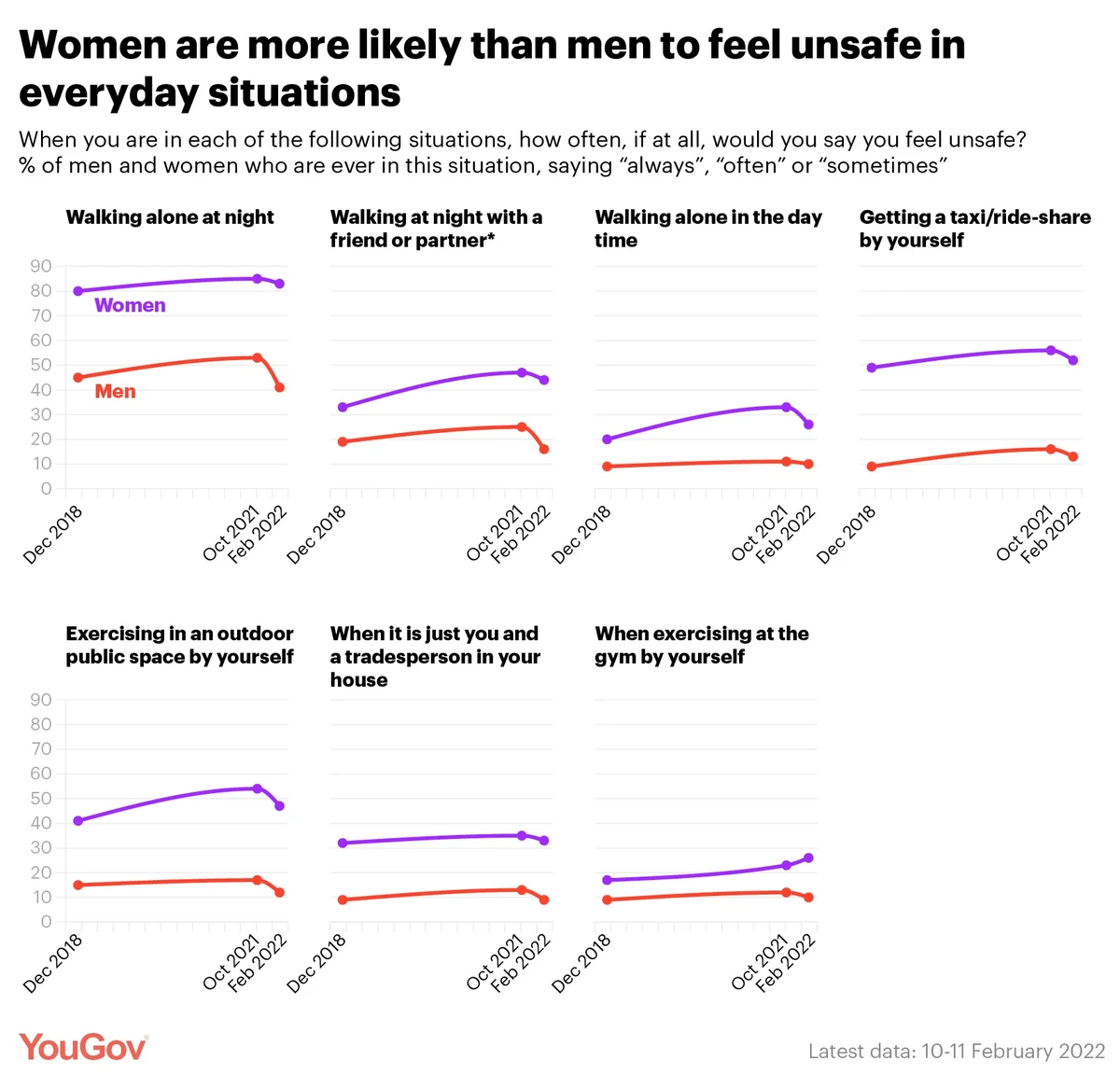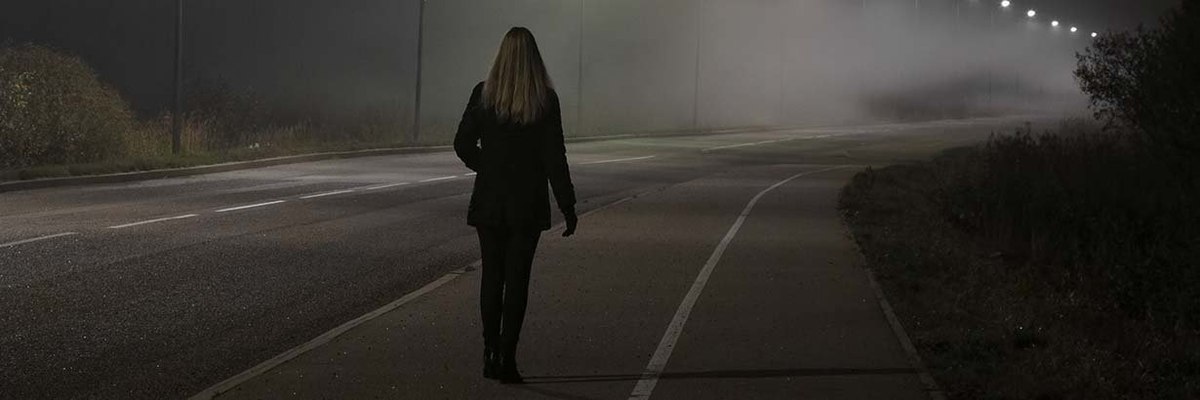Women are most likely to feel unsafe walking alone at night
A year after the nation asked itself how to better protect women, following the murder of Sarah Everard, a new YouGov poll for the BBC shows that many women continue to feel unsafe going about day to day activities.
Women are most likely to say they feel unsafe walking alone home at night, including a quarter (26%) who say they “always” feel unsafe doing so. Overall, 66% of women say they feel unsafe walking home at night at least “sometimes”, and another 20% never do so in the first place, some of whom will be doing so for safety reasons.
Indeed, a separate question in the survey found that half of women (53%) regularly avoid being out at certain times in order to reduce the risk of encountering harassment or sexual assault. Only 16% of men say the same, and just 5% say they never walk alone at night.
More than two in five women (45%) say they feel unsafe at least sometimes when alone on public transport, including 14% who say they always feel unsafe.
Approaching four in ten women (38%) women feel unsafe sometimes or more frequently when travelling alone in a taxi or ride share.
These results are broadly the same as they were six months ago, when YouGov last polled this topic. In all cases, women are substantially more likely than men to say that they find themselves afraid in what should be innocuous everyday situations.

Younger women are more likely to feel afraid for their safety than older women
After accounting for the likelihood to be in certain situations, the results also show that younger women are consistently more likely to feel unsafe than their elders.
For instance, 74% of women aged 18-29 who ever use a taxi or ride share by themselves say they feel unsafe at least sometimes when doing so, compared to 59% of women in their 30s, 52% of women in their 40s, 47% of women in their 50s, and 32% of women aged 60 and over.









